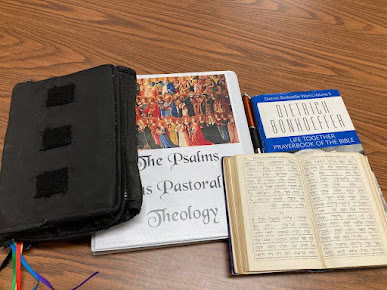STORY of TWO WOMEN
Mark 5:21-43
This is an example of so-called sandwich story – within the
story about the resurrection of the Jair’s daughter, there is a narrative of a
bleeding woman.
a. 5:21-24a,
Jair invites Jesus to cure and save his daughter
b. 5:24b-34, woman touches Jesus and is
healed
a’. 5:35-43, Jesus takes/touches a girl by the hand, and she
is healed/raised from the dead
A couple of notes on the text.
v. 24 has two verbs in relation to the crowd’s behavior toward
Jesus – followed Him and thronged. Some of the translations prefer a better
verb – pressing in on Him (NASB). St. Augustine comments: Few are they who
by faith touch Him; multitudes are they who throng Him. (ACCS, NT-II, p.
75).
v. 26. Mark notices that she wasted all her financial
resources on the doctors. Luke, probably being a doctor (Col. 4:14), avoids the
mentioning of this fact (Lk. 8:43).
v. 36. Jairus’ name comes from the Hebrew Jair (or Yair, cp.
Num. 32:339-41, 1 Chron. 2:21-23), meaning: He (Yah) enlightens (gives
vision/sight). People perceiving his daughter dead, and Jesus “overhearing”
them (some manuscripts say “ignored”) tells Jairus to “believe”. This narrative
simple illustrates what later St. Paul will put so gallantly: Faith comes
from hearing, hearing of the Word of God (Rom.10:17) and we walk by
faith and not by sight (2 Cor. 5:7).
Parallels/contrasts between the woman and daughter:
|
|
Woman |
Daughter |
|
1 |
No name |
No name |
|
2 |
Daughter (v.
34) |
Daughter (v.
23,35); little girl (v. 41) |
|
3 |
12 years of
sickness |
12 years old |
|
4 |
Bleeding (spiritually
“dead”) |
dying |
|
5 |
She touches Him |
He takes/touches
her by her hand |
|
6 |
Jesus heals
her using “talith” |
Jesus calls
her “Talitha” |
|
7 |
Great crowds |
Limited (7)
number of people |
Picture: The Raising of Jairus' Daughter (twelfth-century mosaic) (datail) Byzantine school (from Peter Stanford, A Life of Christ, (London: Quercus [2009], p. 92).
My sermon from 2021 on the text (go to 34:20)




